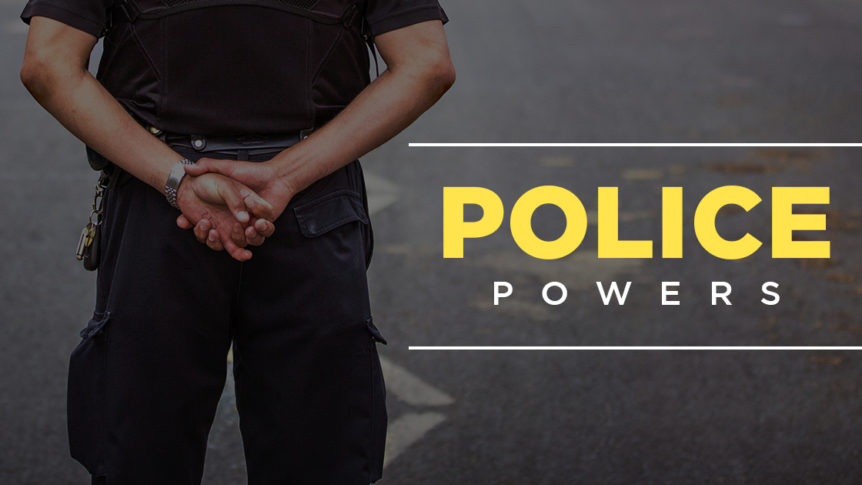Many people are unaware of what powers the police hold within our community.
The main police powers are found in the following laws:
1. Law Enforcement (Powers and Responsibilities) Act 2002
2. Bail Act 2013
3. Crimes (Domestic and Family Violence) Act 2007
These Acts set out the circumstances when police can exercise their powers and the responsibilities that they have in exercising such powers.
Some of the powers police hold include arrest powers, people and property searches, public disorder, move along directions, detention of intoxicated persons and seizing goods.
Police do not have the power to question a person unless they are arrested. Police can request that a person assist them with their enquiries but a person is not obliged to answer questions unless they have been arrested for committing an offence.
Arrest powers of the police relate to what circumstances in which police can arrest you, and the mode and delivery of how arrests are carried out. A police officer can arrest you if, for example you commit an offence, breach the peace or breach bail conditions. Police may also arrest you in circumstances where you are required to be served with an Apprehended Violence Order or where police wish to issue an urgent Apprehended Violence Order against you. If you find that you have been affected by police powers and need to attend court, you may need to seek help from a team of criminal lawyers.
The way in which police carry out arrests is also regulated by legislation. Police officers have the power to use force as is reasonably necessary. At the time of an arrest, you must be informed of the arresting officer’s name and place of duty, that you are under arrest and the reason for being arrested.
The difficulty often encountered by police at the time of an arrest is that if the arrest is disputed, the person being arrested often believes the time of the arrest is the opportunity to voice their dispute. Unfortunately, this may have serious consequences and lead to further charges such as resisting arrest or assault.
Search powers relate to police searching a person, a person’s possessions or the areas in which a person is located including motor vehicles.
These searches are generally based on police having reasonable grounds to believe you are carrying unlawful items such as stolen goods, prohibited drugs, proceeds of crime or weapons.
The extent to which police search you is subject to reasonable grounds of their suspicion. For example, police can ask you to remove your clothing, pat you down and use a metal detector. Police will only perform strip searches in circumstances where they believe it is necessary. Your rights are maintained as best as possible by police being required to perform strip searches at the police station by an officer of the same gender, or in a private area (if serious and urgent). Similarly to being arrested, police must inform the person being searched of their name and place of duty, and advise the reason for their search.
Another power police hold relates to search warrants. Police can search homes, workplaces or other premises and any person at those premises under a search warrant. Similarly to an arrest or personal search, if the search is resisted or disputed at the time of the search, it may lead to further charges. There will be an opportunity at a later time to make a complaint, if necessary.
Where police attend a home relating to a domestic violence issue, police must enquire as to possession of any weapons. If the police believe weapons are at the residence and undisclosed, they have the power to issue a search warrant.
During public events, police also have the power to set up road blocks, declare alcohol-free zones, disperse people and cordon off areas. During these events police can also search people, their belongings and vehicles without people committing an offence and without reasonable suspicion of having committed an offence.
Police also have the power to ask people to move along in public if they are, for example, obstructing other people or traffic, intoxicated or harassing or intimidating others. It is an offence not to comply with a direction to move along.
If a person is intoxicated in a public place, police have the power to detain them if they are disorderly or likely to cause injury to others or themselves. If a person is detained they must be able to contact another person, be provided with food and drink and be kept separately from any person detained for committing an offence.
Every person has a right to silence throughout the legal process. However, it may be inferred against you in certain circumstances.
If a person believes police have not executed their powers in accordance with their obligations pursuant to legislation, they should seek legal advice from expert lawyers in Wollongong.

